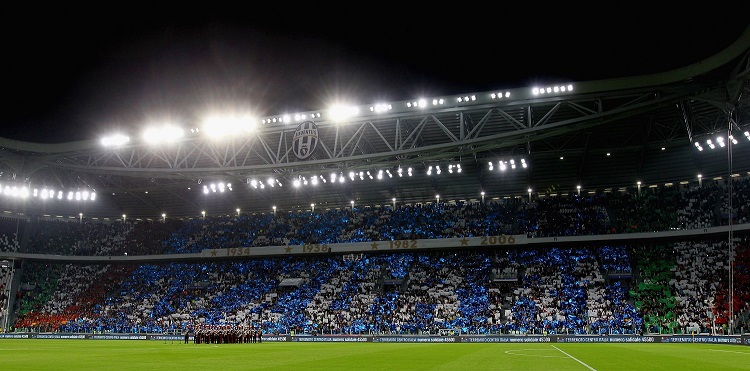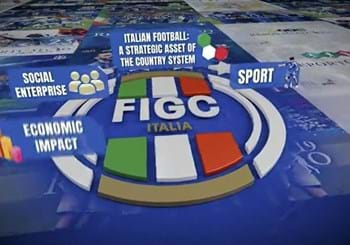
Italy submit their application to host the Women’s Champions League final at the ‘Juventus Stadium’ in 2022 or 2023
Spadafora: “Maximum support from the government.” Gravina: “A fascinating prospect supported by the government, the City of Turin and Juventus.”Tuesday, October 29, 2019

The FIGC have submitted their application to UEFA to host the final of the 2022 or 2023 Women's Champions League at the 'Juventus Stadium' in Turin. The UEFA Executive Committee will announce their decision on 2 March 2020, and should it be a success for Italy, this would be the second Women’s Champions League final to be played in Italy following on from the game in Reggio Emilia’s ‘Città del Tricolore Stadium’ on 26 May 2016. That game was a resounding success for all involved, and an event which hugely helped the growth of women’s football in our country.

The bid submitted, which was prepared completely alongside the government, the City of Turin, Juventus and many other stakeholders, consists of 11 chapters focused on the following topics: the reasons for the federation wanting to host such an event; the FIGC’s aims in the promotion and development of women’s football; the social responsibility and sustainability of the event; legal aspects; safety and security; the stadium and its technical specifications; mobility, hospitality and details of the hotels proposed for the teams and match and UEFA officials; training pitches; promotion; commercial and advertising activities; and finally administrative and financial aspects.
Italy are looking to be more and more of a key figure in an international field following the great footballing events hosted by our country in recent years, such as the 2014 Europa League final, also in Turin, the 2016 Men’s and Women’s Champions League finals in Milan and Reggio Emilia, the European Under-21 Championship in 2019, and of course the long-awaited Euro 2020 in Rome next year.
Minister for Youth Policy and Sport Vincenzo Spadafora said the following: “The government are giving all their support to bring the final of the Women’s Champions League to Italy in 2022 or 2023, with the proposed venue of the ‘Juventus Stadium’ in Turin. My wish is to arrive at that event with a law on semi-professionalism already in force, thus celebrating not only an important international event taking place in our country, but more than anything a well overdue historic reform to the world of women’s sport.”
An extract from the letter sent to UEFA by FIGC President Gabriele Gravina reads as follows: “Women’s football is both the present and the future of this sport. Thanks to the success of the French World Cup last summer, thanks to the new political direction and thanks to the investments made by the FIGC, women’s football has finally become a key asset in Italian football. The support shown from the men’s sides in Serie A has also been a huge factor in this development, with Juventus as a prime example. It is no coincidence that Turin has been put forward as the prospective host city, as it was the same stadium that registered a record number of fans (roughly 40,000) in Juventus’ home game against Fiorentina last season, figures which just two years ago we could never have even imagined. It’s a fascinating prospect which has been received with great enthusiasm and support by the government, the City of Turin and Juventus, all of whom have been central to our application.”
Turin’s Councillor for Sport Roberto Finardi added: “We look forward to the outcome of our application. We’re cautiously optimistic, we know that we’ve worked well with the FIGC to prepare an application that fully reflects the desires of this country and city in hosting this great sporting event. We hope that this can be yet another big step for the entire movement of women’s football.”




